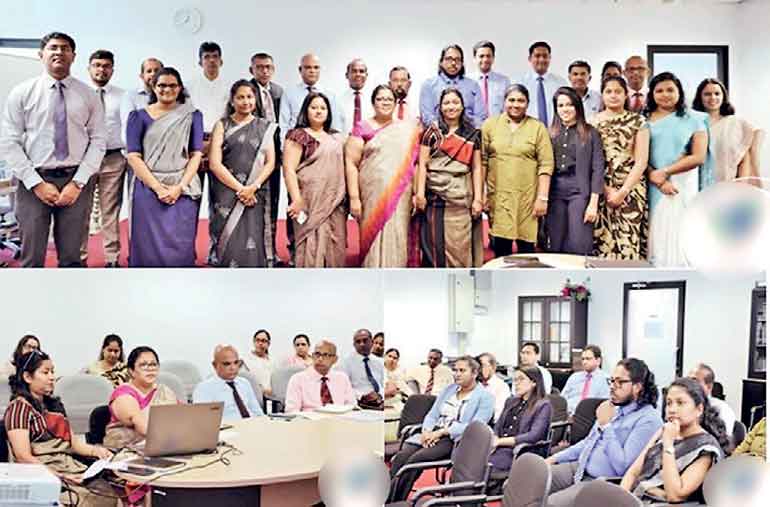Friday Feb 20, 2026
Friday Feb 20, 2026
Tuesday, 29 April 2025 04:04 - - {{hitsCtrl.values.hits}}
 The Insurance Regulatory Commission of Sri Lanka (IRCSL) successfully conducted an inaugural program to foster collaboration between academia engaged in teaching insurance-related degree programs and professionals in the insurance industry. This initiative was carried out based on the conceptual suggestion of Insurance Regulatory Commission of Sri Lanka Chairman Dr. Ajith Raveendra De Mel.
The Insurance Regulatory Commission of Sri Lanka (IRCSL) successfully conducted an inaugural program to foster collaboration between academia engaged in teaching insurance-related degree programs and professionals in the insurance industry. This initiative was carried out based on the conceptual suggestion of Insurance Regulatory Commission of Sri Lanka Chairman Dr. Ajith Raveendra De Mel.
The program was held on 12 March at the IRCSL premises, with the participation 15 senior academic staff members representing eight (08) universities, including the University of Colombo, University of Sri Jayewardenepura, University of Kelaniya, University of Ruhuna, Wayamba University of Sri Lanka, Sabaragamuwa University of Sri Lanka, University of Vavuniya and the Sri Lanka Institute of Information Technology. The Chairman and the Director General of IRCSL, at the outset explained the objectives and future plans towards strengthening the insurance Industry. They emphasised the importance of active collaboration with academia, noting that academia plays a vital role in shaping the future of the industry through research, innovation, and the development of a skilled talent pool. The synergy between regulators, industry, and academia was identified as essential for building a forward-looking, knowledge-driven insurance ecosystem.
The initiative aimed to support the development of undergraduate education by aligning university curricula with the evolving needs of the insurance industry. The discussion particularly focused on designing degree programs that equip graduates with the necessary skills and competencies to contribute effectively to the growth of the insurance industry.
Participants also explored how graduates can build successful careers within the industry by taking on diverse roles and responsibilities, and how career progression can be supported through the wide range of opportunities available across the sector.
The Chairman highlighted that future initiatives such as inter-university quiz competitions, knowledge-sharing workshops, guest lectures for undergraduates, support for academic research, and internship opportunities within the insurance sector will be introduced to foster stronger collaboration and long-term relationships between the insurance industry and academia. It was unanimously agreed that such collaborations would continue to be pursued in the interest of advancing the insurance industry.
Additionally, the participation of representatives from the Actuarial Association of Sri Lanka added value to the discussion and their contribution from the industry perspective was commendable.